The Wind Window
Kiteboarding FAQs: The Wind Window
What is the wind window?
The wind window is the area of the sky where the kite is able to fly. If you think of half of a dome existing downwind of the flier, this will give you the basic idea. The distance to the dome's wall (back of the window) from the flier is determined by the length of the kite lines. The area where the kite no longer can fly forward toward the flier is considered the edge of the wind window. In the following diagrams the flier is represented by a black dot, and the wind direction is noted with an arrow.
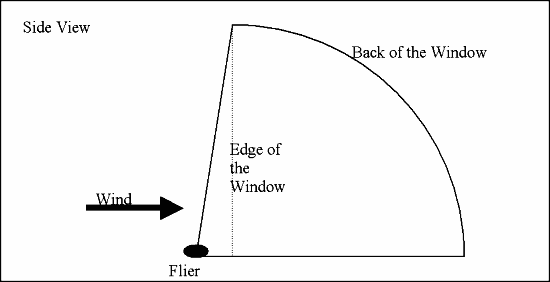
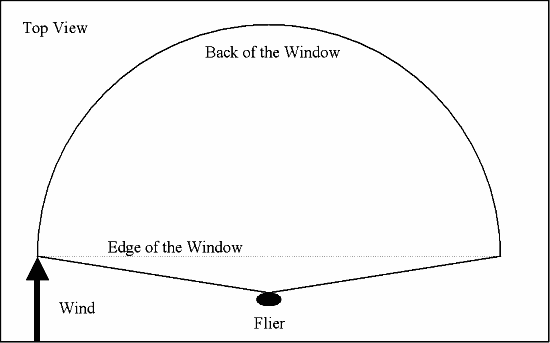
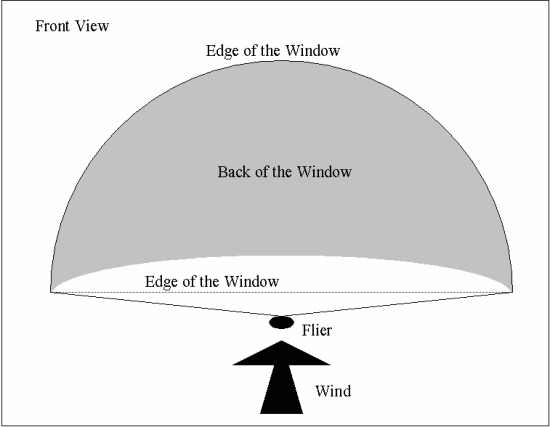
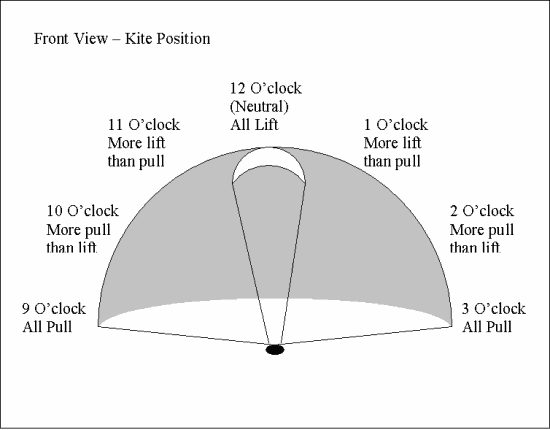
What is the Power Zone?
Downwind from the edge of the window is the power zone. The following figures represent the Power zone as it is seen by the kite flier. The deeper the kite is into the power zone, the greater the pull it has. A kite has the most available power when it is directly downwind of the flier and is traveling near to ground level. As it moves closer to the edge of the window it loses power. One way to remember this is that the more fabric the kite is showing the wind, the stronger the pull. Directly downwind and near the ground the kite is showing the wind nearly all of its surface area and therefore has the most pull. It is precisely for this reason that we must never launch a kiteboarding kite from this position. Unlike most other types of kites, kiteboarding kites need to be launched from the edge of the window where power is minimal, and then slowly steered up to "neutral". This position is where the kite has more lift than pull and is generally easy to control.
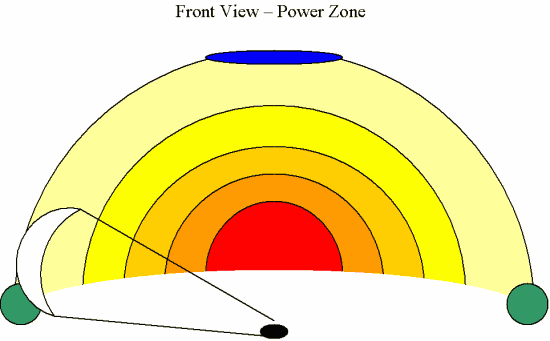
Green - Launch/Land Zone. Kite is ready for launch/landing in diagram
Blue - Neutral. In this position the kite pulls directly up.
Red - Most Power. Kite develops tremendous power here, rarely needed.
Lt. Yellow - Least Power.
Continue to 'How to Fly a Trainer Kite'
Return to the Kiteboarding Knowledge Center
